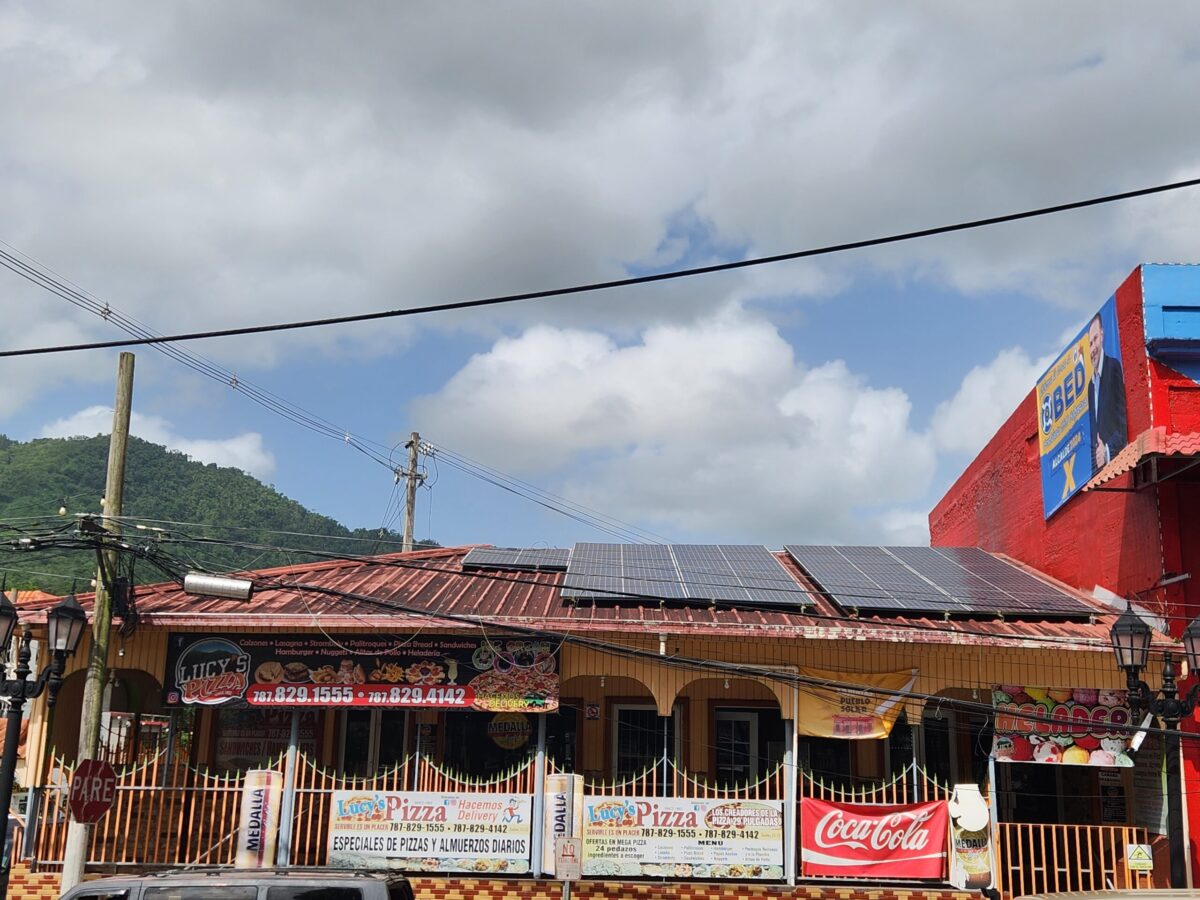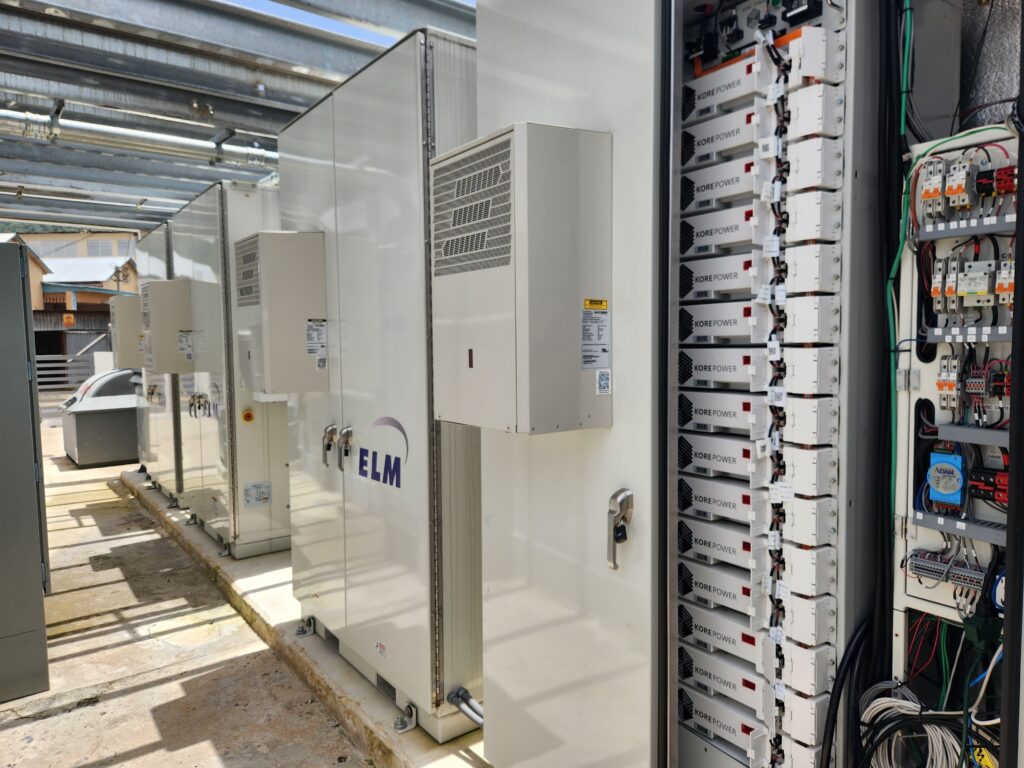 (Credit: Maximiliano Ferrari/ORNL)
(Credit: Maximiliano Ferrari/ORNL)Communities and local energy planners have long been able to install microgrids to ensure continual power during outages. Now there is a DOE-funded tool designed to connect and coordinate multiple microgrids to maintain reliable electric service, integrate more solar and potentially other types of renewable energy, and reduce the need for backup diesel generators.
In 2020, the U.S. Department of Energy Solar Energy Technologies Office (SETO) awarded nearly $4 million to a team at Oak Ridge National Laboratory to develop an optimized solution to manage the distribution of electricity within a network of solar-powered microgrids. The team developed a microgrid orchestrator— software designed to manage the exchange of power between multiple microgrids within a network. The team is in the final stages of hardware testing before demonstrating the microgrid orchestrator in the mountain town of Adjuntas, Puerto Rico.
Two community-owned microgrids will soon provide solar power to Adjuntas, even when blackouts occur in other parts of the island. Adjuntas did not have power for six months because of Hurricane Maria in 2017. Local community organization Casa Pueblo partnered with the nonprofit Honnold Foundation to install the town square microgrids to ensure that Adjuntas residents have access to critical services in the aftermath of future natural disasters.

Credit: Maximiliano Ferrari/ORNL
When Hurricane Fiona hit Puerto Rico in September 2022, a smaller, previously-installed Adjuntas microgrid that serves Casa Pueblo kept the power on for nine days when other parts of the island went dark. Researchers will work to advance the orchestrator’s capabilities to extend electric service as long as possible for future outages.
The DOE says the success of this microgrid orchestrator could result in the creation of microgrid networks in communities across the nation to increase resilience, reduce greenhouse gas emissions, and support energy independence and security.
The DOE also recently announced a $14.7 million Funding Opportunity Announcement (FOA) for multi-year research, development, and demonstration of microgrid-related technologies, with the goal to bring microgrid solutions to underserved and Indigenous communities in remote, rural, and islanded regions in the United States.
With this FOA, DOE’s Office of Electricity’s research partners will develop and demonstrate microgrid-enabling technologies, including renewable generation and storage systems, multi-nodal small-scale high-voltage direct current, advanced demand-side management strategies, and microgrid control systems. The FOA also includes opportunities to address non-technical barriers to deployment of microgrids in these communities, such as lack of local technical expertise and supply chain challenges.